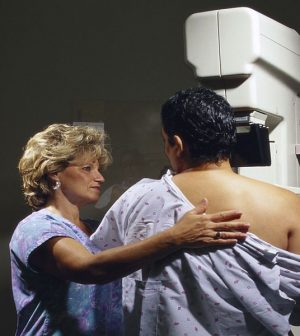- Could Your Grocery Store Meat Be Causing Recurring UTIs?
- Are You Making This Expensive Thermostat Error This Winter?
- Recognizing the Signs of Hypothyroidism
- 10 Strategies to Overcome Insomnia
- Could Artificial Sweeteners Be Aging the Brain Faster?
- Techniques for Soothing Your Nervous System
- Does the Water in Your House Smell Funny? Here’s Why
- Can a Daily Dose of Apple Cider Vinegar Actually Aid Weight Loss?
- 6 Health Beverages That Can Actually Spike Your Blood Sugar
- Treatment Options for Social Anxiety Disorder
Lifestyle Changes Can Lower Your Breast Cancer Risk

While genetics, such as carrying BRCA gene mutations, play a role in who is more likely to get breast cancer, everyday lifestyle factors are involved, too.
Research published in JAMA Oncology used data from thousands of women to identify which lifestyle factors in particular could affect a woman’s risk for breast cancer.
The study found that three specific steps could potentially prevent up to 29 percent of all breast cancers: Avoid alcohol and, after menopause, avoid both obesity and estrogen-progestin replacement hormone therapy.
The researchers noted that these recommendations could be most helpful for women at a high risk of breast cancer because of factors they can’t change, like genetics and their age at menstruation and menopause. In fact, for them, having a low body mass index, not drinking alcohol, not smoking and not taking hormone therapy could lower breast cancer risk to that of the average woman.
The research has some limitations, however. For instance, the study only looked at data from white women in the United States, not other ethnic groups. But these are lifestyle changes that can boost overall health for all women.
For more global advice, the American Institute for Cancer Research states that excess body fat is one of the strongest factors linked to a greater risk of breast cancer after menopause. So is abdominal fat, regardless of your body mass index (a measure of body fat based on height and weight).
The organization also warns that drinking alcohol can increase breast cancer risk before menopause and touts the positive effects of daily exercise and, for new moms, of breastfeeding.
More information
The American Institute for Cancer Research has more on reducing breast cancer risk.
Source: HealthDay
Copyright © 2026 HealthDay. All rights reserved.










